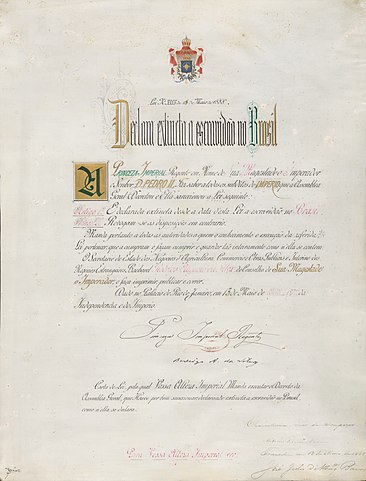Slavery Was Abolished in Brazil
Home to more people of African ancestry than any other country outside of those in Africa, Brazil had one of the longest stints of modern bondage than any other country in the Americas. Trailing years behind other nations, Brazil abolished slavery with the “Golden Law,” on May 13, 1888, becoming the last place in the Americas to abolish slavery.
Slavery in Brazil lasted for 300 years. During that time, 4 million Africans (more than any other nation) were forced to migrate to the country. Africans were taken into Brazil as early as 1530 and entered through a port in Salvador.
During the 16th century, Senegambia provided most of Brazil’s enslaved population. In the 17th century, Angola and the Congo became dominant suppliers. And by the 18th century, enslaved people were being transported from the Gold Coast and Benin.
When the French Caribbean, British, United States and Spanish America abolished slavery, the trade continued in Brazil. By the time Brazil gained independence in 1822, slavery was already deeply rooted in the society.
The abolitionist movements began to gain widespread support in the late 1860s with help from varying groups. The enslaved people were also growing harder to control and owners feared revolts. Several laws were passed to grant gradual freedom. In 1871, Brazil passed the “Law of the Free Womb,” which gave freedom to children born of enslaved people after 1871. Then in 1885, Brazil passed the “Sexagenarian Law,” which freed all of those who were enslaved and over 65 years of age.
Finally, in 1888, Isabel, Princess Imperial of Brazil, signed Lei Áurea, also known as the “Golden Law,” which abolished slavery. Imperial Law No. 3,353, or the Golden Law, legally established the end of slavery in Brazil with the words: “From the date of this law, slavery is declared extinct in Brazil.” Despite accounting for a large portion of the population, Afro-Brazilians still face major inequalities, disadvantages and institutionalized discrimination.


